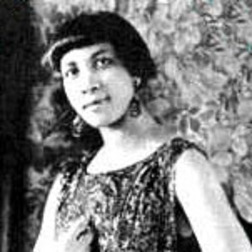This blog focuses primarily on the lyrical content found in the early beginnings of the blues genre. Born out of the depths of the poor, rural South, the Memphis Blues illuminates the hardships that defined the lives of African Americans in the early 1900s. In a time span that ranges from the turn of the century up to the Great Depression, the lyrics of many blues songs acted as windows into the lives of their authors; giving their audience a glimpse into their personal troubles, aspirations, and addictions. The proceeding songs, written by some of the most popular pioneers of the genre, should be viewed as modes of life narrative. Henrietta Yurchenco writes in her journal, "Blues Fallin' Down Like Hail," "...the blues, both words and music, offers an incomparable portrait of life with all its wrinkles. No other art form has been penetrated as deeply into the thinking and feelings of generations of poor southern blacks” (Yurchenco 467). As for most blues songs derived from the Memphis Blues era, “The words are peppered with graphic, vivid expressions of local usage, but the subjects are universal, common to humanity everywhere and easily understood” (448). Blues thus was a form of personal expression - a diary if you will - documenting the lives of African Americans in an autobiographical sense. The following posts offer examples of songs and lyrics that pertain to the mode of personal expression and confession, contextualized with some of the autobiographical concepts offered by Sidone Smith and Julia Watson.
Important quotes from Henrietta Yurchencho's American Music article "Blues Fallin' Down Like Hail"**:
“The blues singer sings only of his or her own life, the pleasures and suffering, and provides remarkable portrait of a private, intimate realm, complete within itself, marching to its own rhythm and governed by its own moral percepts and way of life” (450).
“Despite the survival of certain African musical characteristics, the blues is not native to either Africa or the Caribbean. From its beginnings in the nineteenth century, it was rooted in the life of the poor rural South…” (449).
Blues: “Discord between the sexes, the escalation of violence, and alienation from white society…” (467).
“Male and female blues singers came form the same geographical areas, and the same poverty-stricken backgrounds, and they based their songs on the same themes: discrimination, injustice, exclusion in a Jim Crow society, and relationships between men and women – male machismo and the female backlash, violence between the sexes, sexual promiscuity, and rampant dysfunctional family life” (450).
“Subjects that did not affect the blues singer personally rarely entered the orbit of blues lyrics” (450).
Bessie Smith - "Poor Man’s Blues"
